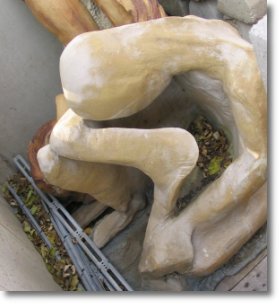An exercise in trust.
That is how I have so far come to understand the
fourth commandment. While I have some understanding of those who have their reasons not to take a weekly day of rest, I continue to find that in my own life it is "neither right nor safe" to do otherwise. I notice that stepping away from most tasks on Sunday helps me both to remember that what I do the rest of the week can't "save my guilty soul
" and to realize that all my toils are not really what is pulling me through in
any area of life.
The last three years were very difficult breathing, spiritually speaking, (though deep breathing exercises were readily available) in the badlands of college. One channel God did use to remind me of Himself was through Sunday sabbaths. Thinking about this, I was unsure of how I formed the view of the sabbath rest as trust. It seems to have a bit of a foundation in
Deuteronomy 5:15, but to summarize it as I did above seems to go a bit beyond that one verse. Was it something I read elsewhere in the Bible, or in another book, or heard in a sermon? I did a bit of searching, and didn't fully answer my question, but found a few articles that also seem to stem from this same source:
- In a word targetted primarily to pastors (see especially after the first horizontal break), I found this challenging point: "Our Sabbath-keeping, therefore, is not to be a day off so that we can be re-energized to run off and meet more felt needs. Rather, it is to be a carved out time to rest in God's presence and trust in God's sovereignty."
- In a book review of The Rest of God, which I have not read but perhaps should, I found more along the same vein as the other site, but written for a wider audience.
Those of you who already have been given a trusting relationship with God, but do not
yet keep a sabbath rest, I hope to encourage you: begin practicing time spent in active trust of God's providence and law. This is not for worldly pleasure or for eternal brownie points, but for a more
delightful relationship with your Lord.

![[light bulb]](buttons/i_thoughts.gif)
